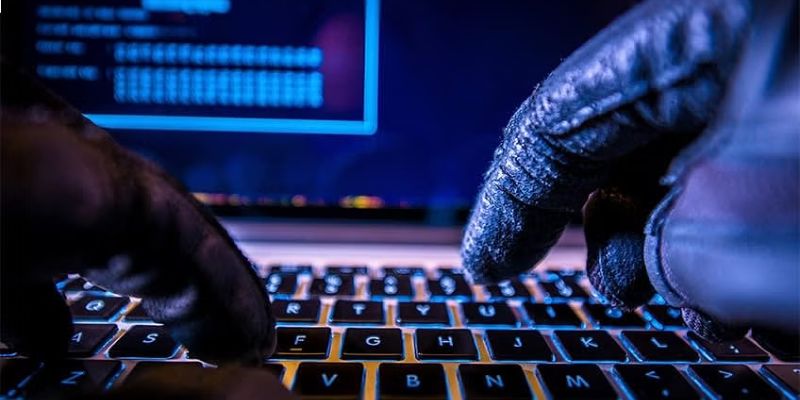
Ethical hacking, sometimes known as penetration testing, involves authorized attempts to access a computer system or network to find vulnerabilities. Unlike malicious hacking, ethical hacking is conducted with permission from the organization, allowing the ethical hacker to use the same methods as a cybercriminal to expose weaknesses. This proactive measure enables companies and individuals to address vulnerabilities before a cybercriminal can exploit these flaws. An Ethical Hacking Course in Pondicherry trains professionals in various techniques to bypass security defenses and help secure systems.
Why Cyber Crime is a Growing Threat
As more of our personal and professional lives shift online, cybercrime has become more lucrative and prevalent. Cybercriminals use phishing, malware, ransomware, and other tactics to access and exploit sensitive information for financial gain. The consequences of cybercrime are severe, from personal identity theft to huge financial losses for businesses. Moreover, government institutions, healthcare organizations, and financial sectors are at constant risk, making cyber security a top concern worldwide. The complexity and frequency of attacks mean traditional security measures are often insufficient, which is where ethical hacking becomes crucial.
How Ethical Hackers Work to Combat Cybercrime
Ethical hackers defend against cybercriminals by exposing system weaknesses before they can be exploited. Using the same tools and techniques as malicious hackers, they aim to protect rather than harm. Once vulnerabilities are identified, ethical hackers report these issues to the organization, which can then take steps to strengthen its defenses. This process involves testing networks, systems, and applications to ensure robust security. With an Ethical Hacking Course in Coimbatore, professionals learn to prevent future attacks and reduce the risk of data breaches, helping to keep sensitive information safe.
The Skills Required to Be an Ethical Hacker
To become an ethical hacker, one needs technical expertise and problem-solving skills. Ethical hackers often have a background in computer science, information technology, or a similar field. They must be knowledgeable in programming, networking, and various operating systems. Additionally, ethical hackers must stay updated on the latest cyber threats and hacking methods. As cybercriminals continually find new ways to breach security systems. A deep understanding of digital forensics, cryptography, and risk assessment is also valuable, as these skills allow ethical hackers to anticipate and respond to cyber threats effectively.
The Role of Ethical Hacking in Cyber Security Strategies
Organizations today are integrating ethical hacking into their core security strategies. By identifying security gaps, ethical hackers help create stronger security frameworks that safeguard data and prevent cyberattacks. Ethical hacking aids in risk assessment and helps meet legal standards, as many regulations now require organizations to protect personal and financial data adequately. An Ethical Hacking Course in Tirupur enables professionals to adopt a preventative approach in their cybersecurity measures, allowing organizations to be proactive rather than reactive.
Industries That Benefit from Ethical Hacking
While any business with an online presence can benefit from ethical hacking, industries like finance, healthcare, government, and retail are particularly vulnerable to cyber threats. Financial institutions rely heavily on ethical hackers to secure transactions and prevent breaches that could compromise their customers’ data. Similarly, healthcare organizations need ethical hackers to protect sensitive medical information. Ethical hackers help protect critical infrastructure and national security in the government sector. The retail industry also faces frequent cyberattacks as they handle vast amounts of customer data. By employing ethical hackers, these sectors can ensure a safer online environment for their users and customers.
How Ethical Hacking Protects Personal Information
For individuals, ethical hacking indirectly protects personal data by ensuring that applications and websites we use daily-such as social media, banking apps, and e-commerce platforms-are secure. Ethical hackers identify and fix potential security flaws, helping protect personal information like addresses, credit card details, and medical records. An Ethical Hacking Course in Dindigul prepares professionals to secure these digital interactions, which helps individuals avoid identity theft and fraud.
Future of Ethical Hacking
As cyber threats grow more complex, the demand for skilled ethical hackers will continue to rise. With technological advancements, including the increasing use of artificial intelligence (AI) in cyber-attacks, ethical hackers must keep evolving their skills. The future may see more specialized areas within ethical hacking, focusing on specific threats or systems. Ethical hacking is expected to become even more essential as the internet of things (IoT) and connected devices grow, requiring vigilance in securing many endpoints. Ethical hackers will play a vital role in safeguarding the digital world by staying at the forefront of cybersecurity.
Ethical hacking is a powerful tool in the fight against cybercrime, allowing organizations to identify and resolve security weaknesses before they can be exploited. By simulating real-world attacks, ethical hackers can stay one step ahead of cybercriminals, preventing costly data breaches. The work they do benefits businesses, government institutions, and individuals alike, creating a safer and more secure digital environment for everyone. An Ethical Hacking Course in Madurai provides the necessary skills and knowledge to make this possible, supporting a strong cybersecurity strategy against sophisticated cyber threats.
Also Check:
